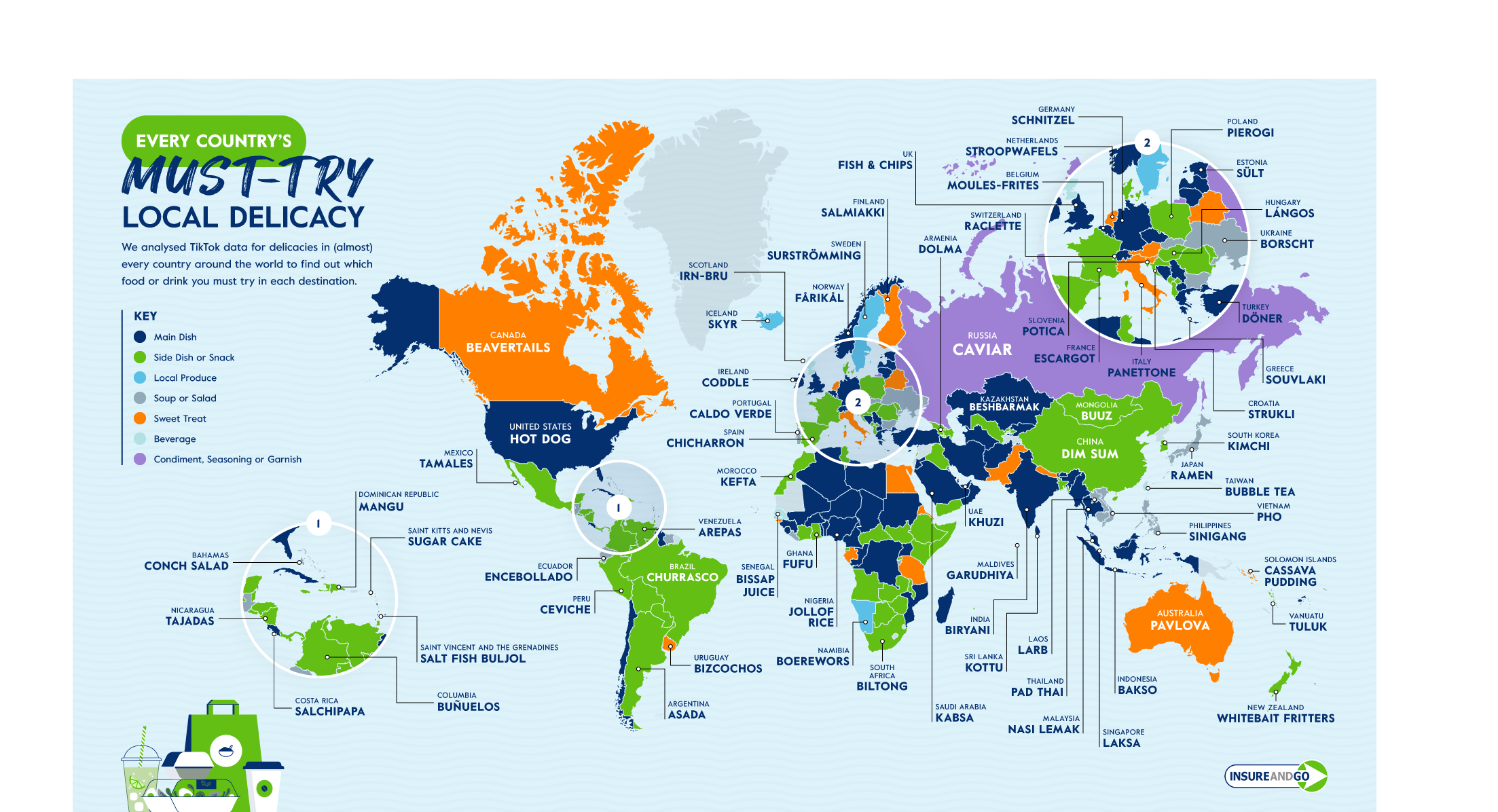Blog
Categories
-

Are you over-packing your suitcase? The top 25 items we never unpack
Our latest research shows that 74% of us admit that we pack things for our holidays that we never end up using – with each of us taking 3.4 unused items on average. At a time when the average UK traveller accounts for approximately 92 kg of CO2 emissions per hour of their flight1, taking…
-

The global hotspots travellers most want to return to
Many people plan their dream trips for a while, getting comprehensive travel insurance in place and filling their itineraries with attractions and sights they’ve patiently waited to tick off their bucket lists. But while many of us travel somewhere new each year, in fear of not having visited some of the best parts of the…
-

The perils of motorbike hire on holiday: Brits invalidate travel cover by ditching helmets
Our latest data reveals the top 10 destinations where British holidaymakers think it’s OK to hire a motorbike or moped and risk riding without a helmet. Thailand tops the danger list – with 30% of survey respondents saying it would be the norm to ride a hire bike or moped without wearing an approved helmet.…
-

Two of the six Which? ‘Best Buy’s’ 2024 for travel insurance are InsureandGo products
Which? announces its inaugural ‘Best Buy’s’ for the travel insurance category! InsureandGo Travel Insurance, is delighted to announce that two of its policies has received the prestigious ‘Best Buy’ status by Which? in their 2024 review of the best travel insurance companies and policies. Which?, the consumer champion, rigorously tests and reviews hundreds of products…
-

10 things that can leave your winter sports insurance out in the cold
Our recent research has found that the absence of snow is not a problem for Brits on a winter holiday, as many are happy to embrace a wide range of alternatives to skiing. These include local sightseeing, hiking, or simply sitting back and enjoying the view. However, the research highlighted some of the riskier activities…
-

Popular winter sports destinations to visit in 2024
If you love snow, ice and adrenaline, consider a winter sports holiday this year. Whether you’re a seasoned skier or just looking for fun in the frosty air, the perfect destination is waiting for you. But where should you go? There are so many options to choose from, each with its own charm and appeal.…
-

How to renew your passport easily
One of the most vital parts of organising your holiday is making sure your passport is valid and up to date. Renewing your passport is easy and convenient, and you can do it online or using a physical application form. Read on for our guide on how to renew your passport, what documents you’ll need,…
-

Every country’s must-try local delicacy revealed
Going on holiday means choosing the right destination, packing everything you need, buying travel insurance and making a list of everything we want to see, and most importantly eat, while we’re away. A country’s cuisine is born and developed out of the fusion of its cultural practices, traditions and beliefs, and with over 4,000 different…
-
Trending Christmas Markets Around The World
With Christmas around the corner, all over the world, stalls are being prepped, wine is being mulled and chestnuts are being roasted – it’s almost time for Christmas markets to open their doors. Germany’s Christmas markets have historically drawn in tourists from all over, and France’s Strasbourg plays host to one of the oldest and most…
-

Small steps to sustainable travelling: 5 Reusable bottles
Our recent research highlights that a growing number of UK travellers are making sustainability a key factor in their holiday planning. This can be a small step such as packing reusable items, or something larger such as trying alternatives to air travel. To help you out, we’ve put together our pick of the best reusable…

